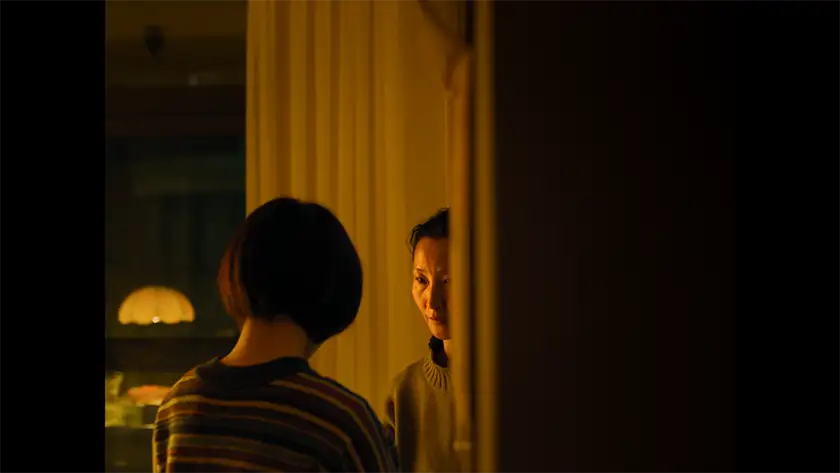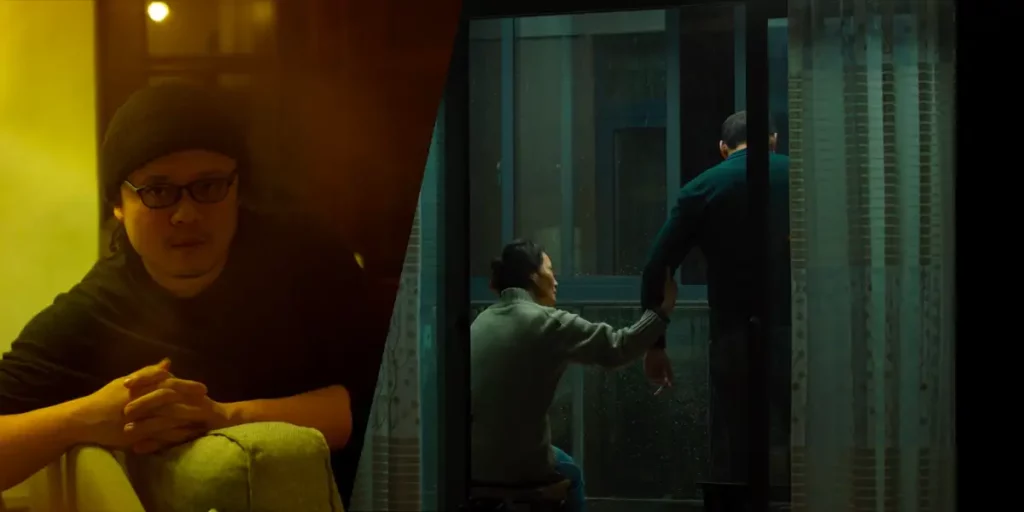Along with the premiere of Some Rain Must Fall at the Tribeca Film Festival, we interview writer-director Qiu Yang about his feature debut.
Some Rain Must Fall had its world premiere at the Berlin FIlm Festival before coming to Tribeca. The film is a quiet, patient melodrama about a woman (played by Aier Yu) who goes through a series of revelations about herself and her family. Qiu’s film deals with themes of loneliness and depression, and he films it in a distinctive style without adding in drama for drama’s sake. In our interview with writer-director Qiu Yang, we talk about the use of non-professional actors, the inspirations behind the film’s visual aesthetic, and Qiu’s personal connections to the story.
Qiu Yang on the thematic similarities between his films
Your short films have a thematic similarity of girlhood, and the bonds between a mother and daughter, which Some Rain Must Fall has as well. What is it about this idea that appeals to you?
Qiu Yang: I like to write stories about families, and I think that’s where I drew inspiration from my own past, my upbringing, and my relationships with my parents, especially with my mother. That’s all I really talk about: all the unforgettable events that happened in my life, and things I’ve witnessed. I don’t necessarily know what those things mean in my mother’s life, or my life, but they’re things that I’ve witnessed that I couldn’t forget. So a lot of those things, when I’m writing a new story, just sort of come out. Most of the time, when I’ve done those stories, those pieces of things, I don’t necessarily know what they mean or what sort of message they give to the audience, but to me, it was quite intuitional. It felt instinctively like some pieces of the story should be here.
You see that a lot with directors, working from real life experiences, as ways to process those moments. It’s “men or women would rather make a film about [blank] than go to therapy.”
QY: Yes! It’s so true! I believe most artists create art as a way to deal with their own problems, or to solve the mystery of things that happened in their lives. To me, it’s free therapy. [laughs]

Qiu Yang on the visual inspiration in Some Rain Must Fall
The look of the film is very distinctive. What went into the decision to shoot it in the Academy aspect ratio?
Qiu Yang: I worked with my cinematographer on two short films, which were both 4:3. We both really like the 4:3 aspect ratio, and I really like photography. I was trained as a painter from a very young age. It’s sort of my family tradition. So, traditionally, in cinema, everything is horizontal. When, in the painting world, or photography, you do tell stories more vertically. I think one thing we tried to test is not just to tell stories horizontally, but to tell stories vertically. To us, 4:3 is not narrow, but it’s taller. With a cinema screen, you almost cut the sides off, but we see it as taller.
Whenever mainstream films shoot in the square format, it’s kind of a thematic reason, as if the walls are literally closing in on the main characters. But this is a unique visual way of thinking of that.
QY: That is another way to interpret it, yes. The film is about a woman trying to escape from her life, as if her life is a trap. So the 4:3 in a way fits that, thematically, perfectly.
On the thematic development of the visual language in Some Rain Must Fall
Your camera rarely moves, as with the films of Yasujiro Ozu. A lot of the drama tends to happen either off-screen, or from a distance, or obscured by something that’s closer in the foreground. What went into shooting in that style?
Qiu Yang: In the beginning, we talked about the story of the film. It doesn’t really have a traditional plot, in a way. It’s more about the discovery of this woman, one half hour at a time. It’s sort of a journey for the audience to discover who this woman is, while this woman discovers for herself who she is. We wanted to show the film in a more observational way, rather than to always be with her, so we have a certain distance there.
The camera is from the audience’s perspective, so you’re witnessing what’s going on there. But at the same time, the distance helps to create a certain mystery there, so the audience only knows the same information about the woman as she knows about herself, which is not a lot at that moment. I don’t think the woman fully understands who she is or what she wants, or what she wants to do, or what she’s escaping from, by the end of the film. That’s a feeling we wanted to bring to the audience as well. We want to stay a little further away, and it’s about discovery.
Qiu Yang on working with professional and non-professional actors
You’re working almost exclusively with actors with no previous acting credits. Was that a learning experience for you, or the actors?
Qiu Yang: I studied in Australia, and I worked a lot there with both professional and non-professional actors. When I went back to China, I mainly worked with non-professional actors. This is my first feature film, and I’ve made a few independent short films before. It would be very difficult for me to get professional actors in my short films, so I’ve just always worked with non-professionals. I’m comfortable with it, and I like it, because to work with this type of non-professional actor is more about finding the right people than trying to find someone who can act. If I can find someone who is very similar to that character, I just ask them to be themselves.
With a feature, it’s a little different though. Because you shoot for almost 2 or 3 months, versus a week with a short film, so everything becomes more difficult to sustain because it’s really hard work that can be physically and mentally exhausting. Especially for the main actress [Aier Yu], because she’s in every single scene and she’s there on set every single day with me. Halfway through, she sort of realized, ‘this is not how I imagined working in a film. This is actually really difficult.’
I think that’s quite different from doing a short film because you have to work with them more. Sometimes when they have a breakdown, you have to talk to them and re-encourage them to move forward.
When you’re trying to cast a role, does it make it easier or harder if they’re a non-professional? If you have a professional actor, you have to go through the audition process and casting, scheduling, etc., but you have prior work to look at as an example. But with a non-professional actor, it’s kind of the opposite process.
QY: Yes, there are pros and cons to both sides. I don’t necessarily have to stick with non-professional actors; to me, there is no professional or non-professional. You just have to find the right one for the character, or for this project. Even with non-professional actors, I still go through a sort of audition process as well, so there’s a lot of street casting.
There are a few professional supporting actors in the film, but you go through another set of problems as well. You have to go through agents, schedules, and it’s tougher to negotiate. Sometimes this makes a production, especially an independent production, more difficult, so you have to negotiate and everything. The biggest thing when you mix the different types of actors is how to embrace that so they look very unified, and you can’t tell who is a professional and who is not. Usually you can really tell who is an actor and who is not. To me, it really depends on the project, the character, and the role.
This interview was edited for length and clarity.
Some Rain Must Fall premiered at the Tribeca Film Festival on June 6, 2024. Read our review of Some Rain Must Fall!
Header credits: Chiang Wei Liang, Wild Grass Films / 2024 Tribeca Film Festival

